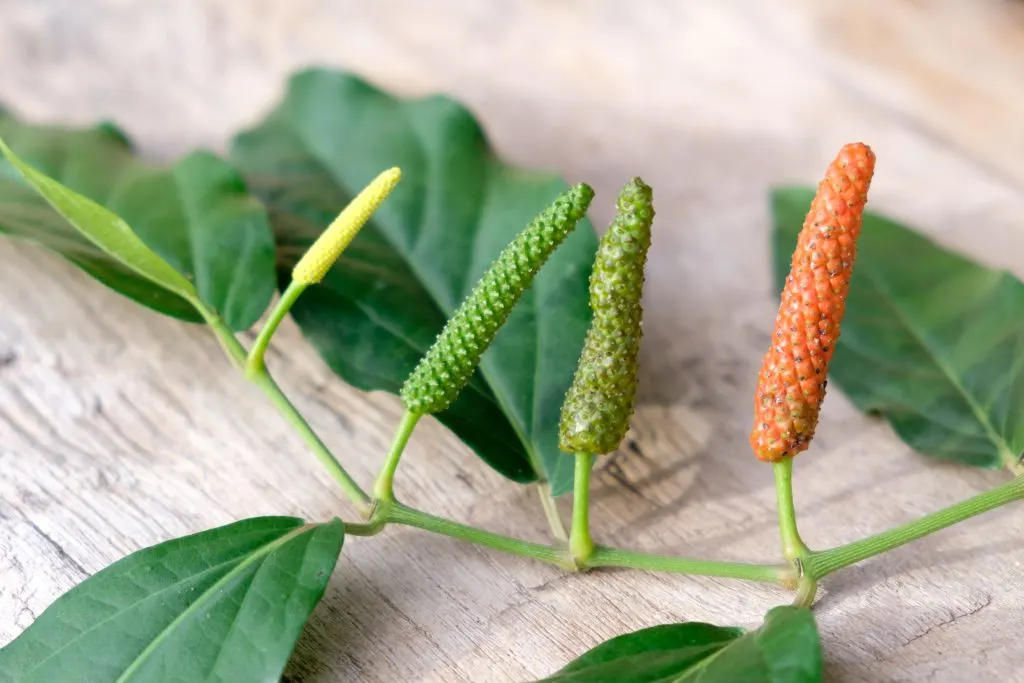
From Java Farms to Global Markets: The Journey of Piper Retrofractum
Explore the fascinating cultivation process of Java Long Pepper (Piper retrofractum) and learn why Indonesian-grown Cabe Jawa is becoming increasingly sought-after in international spice markets.
The Rising Star of Indonesian Spice Exports
Piper retrofractum Vahl, commonly known as Java Long Pepper, Cabe Jawa, or Lada Panjang, represents one of Indonesia's most valuable yet underappreciated spice exports. As global markets increasingly seek authentic, sustainably-sourced ingredients, this ancient spice is experiencing a renaissance.
Understanding Piper Retrofractum
Botanical Background
Java Long Pepper belongs to the Piperaceae family and shares botanical relatives with black pepper (Piper nigrum). However, its unique characteristics set it apart:
* Scientific Name: Piper retrofractum Vahl
* Common Names:
- Indonesia: Cabe Jawa, Lada Panjang, Cabe Jamus
- English: Java Long Pepper, Javanese Long Pepper
- Other: Balinese Long Pepper
* Origin: Native to Java, Indonesia
* Growing Zones: Tropical climates with specific conditions
Cultivation Process
Ideal Growing Conditions
Java Long Pepper thrives in Indonesia's tropical climate, requiring:
Climate Requirements:
* Temperature: 20-30°C (68-86°F)
* Rainfall: 1500-3000mm annually
* Humidity: 70-85%
* Altitude: 100-600 meters above sea level
Soil Preferences:
* Well-draining, fertile soil
* Rich in organic matter
* pH range: 5.5-7.0
* Good moisture retention
Traditional Farming Methods
Indonesian farmers have perfected cultivation techniques over generations:
Propagation:
Through stem cuttings from mature, healthy vines planted during the rainy season
Support Systems:
Vines require sturdy support structures, traditionally provided by living trees or wooden poles
Growth Cycle:
First harvest possible after 2-3 years, with peak production from years 4-7
Sustainable Practices:
Many farms integrate Long Pepper into agroforestry systems, promoting biodiversity
Harvesting and Processing
Harvest Timing
The timing of harvest significantly affects quality and flavor:
* Unripe (Green): Harvested for specific medicinal applications
* Semi-ripe: Offers balanced flavor profile
* Fully ripe: Maximum sweetness before pungency develops
Post-Harvest Processing
Sun Drying Method:
1. Fresh fruit spikes are carefully hand-picked
2. Spread on clean bamboo mats or drying racks
3. Sun-dried for 5-7 days until moisture content reaches 10-12%
4. Sorted and graded by size and quality
Quality Indicators:
* Deep brown to black color
* Intact spike structure
* Strong aromatic profile
* Free from mold or damage
Global Market Dynamics
Growing International Demand
The global spice market is witnessing increased interest in Java Long Pepper due to:
Culinary Innovation:
* High-end restaurants seeking unique flavor profiles
* Specialty spice companies expanding exotic offerings
* Home chefs exploring authentic Asian ingredients
Wellness Industry:
* Natural health product manufacturers
* Traditional medicine practitioners
* Nutraceutical companies
Craft Beverage Sector:
* Specialty tea blenders
* Artisan spirit producers
* Functional beverage creators
Export Markets
Indonesian Java Long Pepper primarily exports to:
* Europe: Netherlands, Germany, France, UK
* Asia: Japan, South Korea, Singapore
* Middle East: UAE, Saudi Arabia
* North America: USA, Canada
Quality Standards and Certification
International Standards
Premium Java Long Pepper meets stringent requirements:
* Organic Certification: USDA Organic, EU Organic
* Food Safety: HACCP, ISO 22000
* Quality Grading: Based on size, color, aroma, and purity
* Traceability: Farm-to-export documentation
Indonesian Grading System
Grade A (Premium):
* Spike length: 2.5-4 cm
* Uniform dark brown color
* Strong aroma
* No broken pieces or foreign matter
Grade B (Standard):
* Spike length: 1.5-2.5 cm
* Consistent quality
* Good aroma
* Minimal breakage
Economic Impact
Supporting Local Communities
Java Long Pepper cultivation provides:
* Sustainable Income: Year-round employment for farming families
* Economic Diversification: Complementary crop to other agricultural activities
* Cultural Preservation: Maintains traditional farming knowledge
* Women Empowerment: Many processing activities employ women
Value Addition Opportunities
Indonesian producers are exploring:
* Essential Oil Extraction: High-value derivatives
* Powdered Products: Ready-to-use consumer formats
* Organic Certification: Premium market positioning
* Fair Trade Partnerships: Enhanced farmer benefits
Challenges and Opportunities
Current Challenges
Production Issues:
* Climate variability affecting yields
* Limited mechanization in processing
* Need for consistent quality standards
* Competition from synthetic alternatives
Market Access:
* Limited international brand recognition
* Complex export regulations
* Transportation and logistics costs
* Need for market education
Future Opportunities
Market Development:
* Growing global awareness of Indonesian spices
* Increasing demand for natural ingredients
* E-commerce expansion reaching direct consumers
* Collaboration with international chefs and brands
Research and Development:
* Scientific validation of health benefits
* Improved cultivation techniques
* Product innovation and diversification
* Sustainable farming certifications
Agro Green Java's Commitment
At Agro Green Java, we bridge Indonesian farmers with global markets by:
* Direct Farmer Partnerships: Ensuring fair prices and sustainable practices
* Quality Assurance: Rigorous testing and grading systems
* Sustainable Sourcing: Supporting environmentally responsible farming
* Market Education: Sharing knowledge about authentic Indonesian spices
* Reliable Export: Professional handling from farm to international buyer
Conclusion
Java Long Pepper (Piper retrofractum) represents more than just a spice—it's a testament to Indonesia's rich agricultural heritage and a symbol of sustainable tropical agriculture. As global markets increasingly value authenticity, traceability, and quality, Indonesian Cabe Jawa is perfectly positioned to meet this demand.
Whether you're a spice trader, food manufacturer, restaurant owner, or wellness brand, partnering with reliable Indonesian suppliers ensures access to this remarkable ingredient while supporting sustainable farming communities.
The journey from Java's lush farms to global markets continues to evolve, and Java Long Pepper is ready to spice up the world—one spike at a time.
Share this article
Published on 10/21/2025
Updated on 10/21/2025